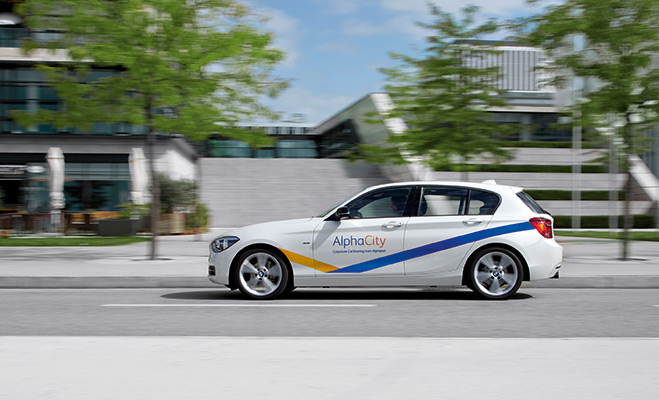
Employee travel or mobility is an essential requirement for the success of many modern businesses. Company mobility needs can be complex, for example, in the creation of a delivery or sales fleet. They can also be less intricate: one-day business trips now account for more than half of business travel needs. Undoubtedly, more employees are travelling nowadays than ever before.
Spending on fleet and travel management can be a company’s second or third biggest outgoing after payroll. In an uncertain economic climate, managers look for the best way to cut expenses wherever possible. Mobility is generally the first item on their list.
Centralising company travel
Business travel saving can be done in a number of ways. Travel can be restricted or fleets can be downsized. However, the real savings from these measures have to be looked at with a broader perspective. In tough economic times, sharpening the competitive edge by maintaining customer contact and acquiring new clientele is more crucial than ever for survival. Cutting the mobility budget may save money, but long-term, this measure can cost dearly in client and revenue loss. Some estimates put a 50 percent cut in business travel resulting in a similar loss in income. It can take up to three years for profits to return to pre-cuts levels.
Making savings on mobility, without reducing revenue, demands creative thinking and innovative solutions. Repositioning company mobility management is one solution. In most organisations, fleet is looked after by one department and travel management by another. Centralisation of all company mobility, whereby one department takes care of everything from train tickets to fleet management, is a solution which leads to greater cost efficiency – during good times and bad. Through centralisation, a wider view is taken of a company’s complete mobility outgoings. This comprehensive approach leads to the formation of a redefined goal, to find more efficient, company-wide solutions that benefit all employee mobility requirements and the company’s financial bottom line.
Efficient employee mobility
Integrating all travel needs enables better visibility of a company’s total cost of mobility (TCM) and allows quick identification of inefficiencies. For example, if an executive parks his company car at the airport while he or she flies away on business for a week, this is an inefficient use of a costly resource. A taxi could be used, but the airport is one hour away.
That’s expensive. Ideally, the company car could be driven to the airport, parked and then picked up by another executive coming in from overseas that day. With a new, centralised mobility outlook, companies are driven to seek out creative solutions for exactly these predicaments. This is where the mobility experts at fleet management organisations step in.
Today, advanced business mobility synergies are being developed by fleet organisations such as the replacement of hire cars and taxis with company car pooling. Alphabet introduced an effective corporate car-sharing solution called AlphaCity one year ago. This scheme combines a car leasing service with an on-demand employee mobility programme, in which cars are made available to employees without a company car, for business or private use. The technology behind AlphaCity makes it very convenient. Cars can be booked via the company intranet. Private use is paid for with a personal credit card.
Business use is allocated to the relevant corporate cost centre. Income generated by private-use fees is offset against leasing and other mobility outgoings. In fact, optimal use of this car-sharing solution can reduce the operating costs by up to 30 percent. Savings are also made through the reduced utilisation of taxis and hire cars.
For sustainability targets, AlphaCity also provides the perfect platform for the introduction of electric cars. Nowadays, tax and financial incentives for cars with low emissions or no emissions at all, can be availed of in many countries, providing yet another way of saving money on mobility.
AlphaCity enables fast, flexible and efficient employee mobility. Cars can be booked up to a few hours prior to use. Employees have a special RFID chip on their driver’s licenses which allows keyless access to and operation of the cars. By providing employees with car availability for weekends and leisure time, this car-sharing option not only saves money, it provides a perfect employee incentive. That’s got to be good news for management, staff and especially, the bottom line.
For more information visit www.alphabet.com

